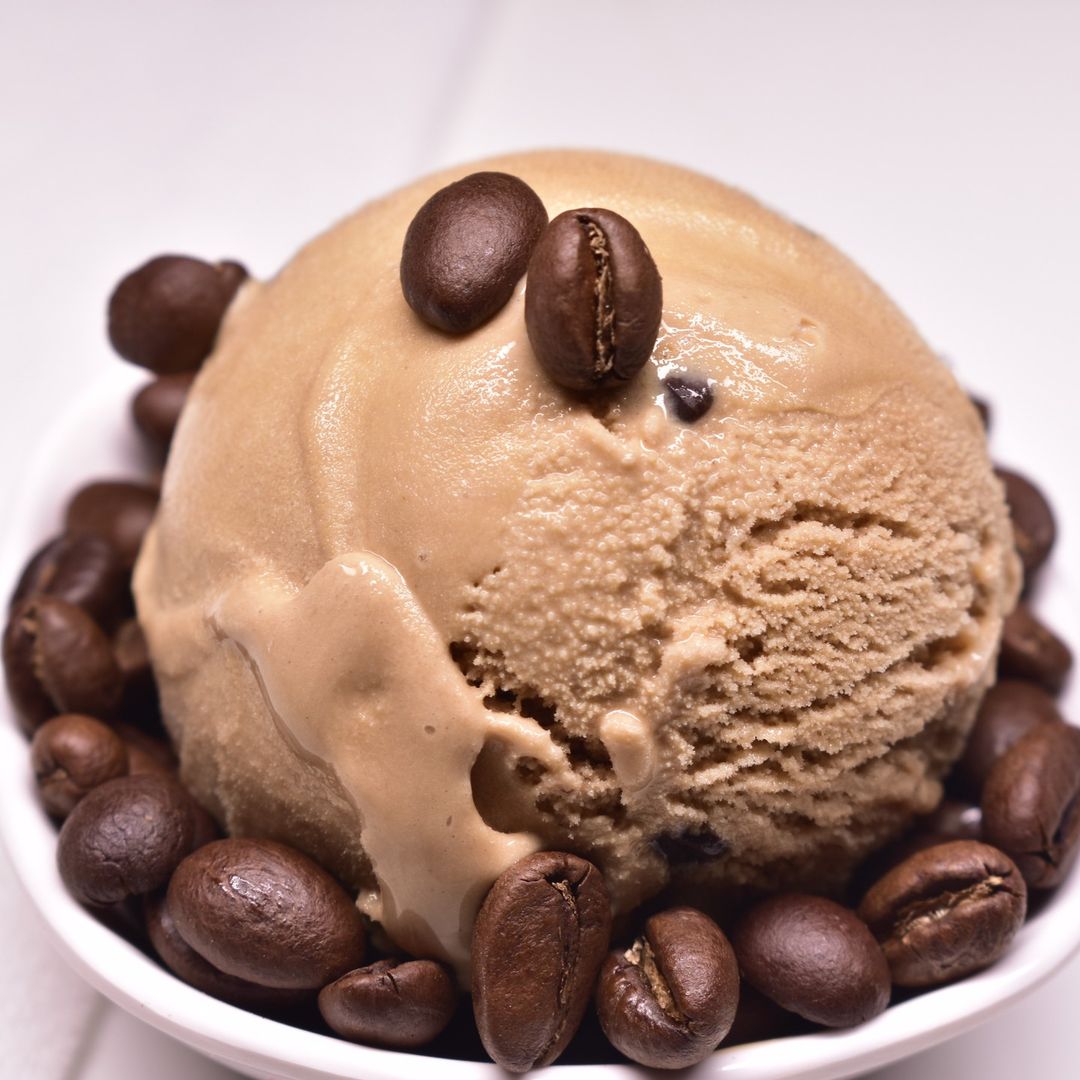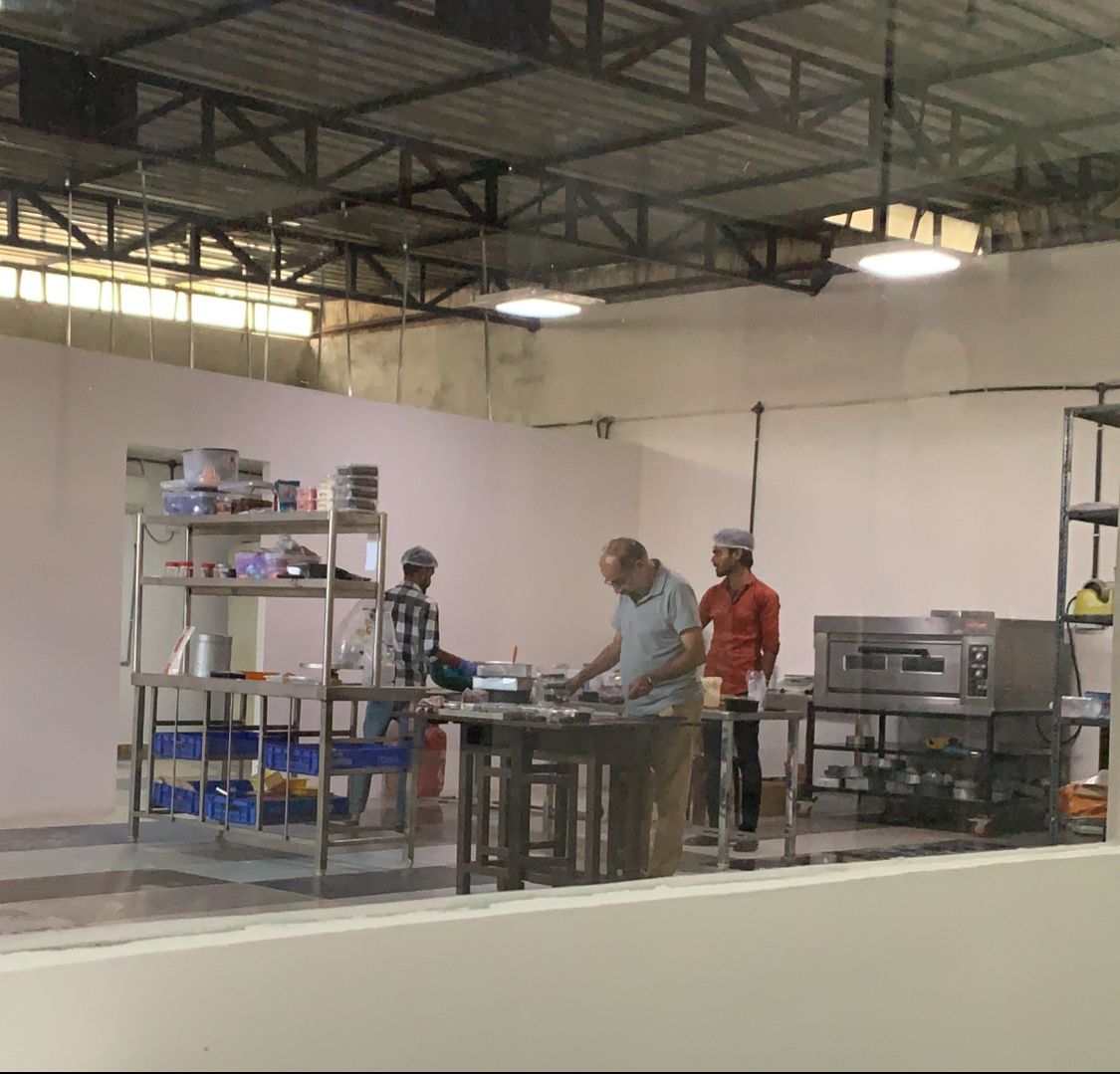“Hey Siri. Get me an ice cream.”
“Sure, here are some suggestions.”
What if digital assistants could actually dole out ice creams instead of just suggestions?
Well, while Apple’s Siri does not have that feature, there is another Siri that provides delicious ice creams in parts of Tamil Nadu, Andhra Pradesh, and Telangana. What’s even more special is that these ice-creams are millet-based and vegan.
Four friends — Prabu Venugopal, Shashidhar, Arun Prakash, and Bhargav — started ‘Siri’, a vegan ice-cream parlour in Trichy, Tamil Nadu to change the definition of this frozen dessert in the country.
Although these globetrotters hailed from different industries, they shared a common thread — they all had farming backgrounds. So after working in different parts of the world, the four professionals quit their cushy jobs and returned to their hometowns — Prabu and Arun to Trichy; Shashidhar and Bhargav to Hyderabad — in 2016.
They then pooled their diverse experiences in hotel management, food science, marketing and finance, and brainstormed ideas to use their farmland as a valuable resource to build a thriving food business.
Passionate about building sustainable food systems, they zeroed in on growing India’s traditional supergrains — millets. Known for its drought-resistant qualities and nutritional benefits, millet seemed like the perfect candidate to promote both health and sustainability. Their efforts gave birth to ‘Siri Millets’ in 2017 with a mission to popularise the grain through value-added products like snacks, flakes, vermicelli, pasta, and much more.
Just as they were about to launch their products on a grand scale, the COVID-19 pandemic dealt a significant blow to their meticulously planned strategies. Yet, this adversity turned out to be a hidden blessing, spurring them to innovate. Out of this challenge emerged the idea of millet-based ice cream!
The path was not easy, yet they persisted with research and development for eight months. Finally, their labour of love, ‘Siri – House of Vegan Ice Creams’, was launched in 2020. With four functional outlets today, they are planning to expand their footprint through 10 to 15 stores in the coming few months.
Beyond providing a vegan, more nutritious alternative to ice cream, they are also working on educating youngsters about the importance of eating habits through awareness programmes.
So how did they make this millet-based ice cream a reality?
From four parts of the world to India
Prabu (45), a hotelier with over 25 years of experience in the field, crossed paths with Shashidhar (37), a food scientist, through work. They became friends over their common love for food and nutrition. Arun (33), a marketing professional working in the UK, was Prabu’s neighbour in Trichy, while Bhargav (39) is a fintech expert working in the USA and Shashidhar’s brother.

Although work took them to different continents, they all wanted to eventually come back to be with their ageing parents. Their families owned farmlands on which they grew paddy, which was becoming a problem due to climate change and water scarcity.
“Before the green revolution, our grandparents were growing millets like jowar, ragi, and bajra on their farms, which require less water and are resilient to climate change. The advent of the green revolution caused a shift to paddy,” Shashidhar tells The Better India.
Prabu chimes in, as Arun and his family too, share a similar story.
It’s no secret that farmers in the delta districts of Tamil Nadu, including Trichy, have experienced years of poor paddy yields due to insufficient water for irrigation, forcing many to seek alternative employment.
Hours of discussion before they quit their jobs led them to explore the possibility of cultivating millets on their existing land in Trichy and Hyderabad. Shashidhar even purchased an additional 40 acres of land and started growing jowar, ragi, and seasonal vegetables.
While growing millets was one part of the vision, the other part was drawn from their experiences. They noticed a shift towards healthy, vegan food across the world.
“I noticed that dietary requirements were changing. There was an increasing demand for vegan, non-dairy alternatives, as more people are getting lactose intolerant. In other parts of the world, people were asking for almond and oats milk, which made us wonder about an Indian, vegan alternative,” Prabu tells The Better India.
In the first couple of years after starting Siri Millets, they launched millet laddoos, cookies, vermicelli, and rava. They piloted these value-added products in Telangana and Gujarat by providing them to students in government schools for 45 days for free.
When the COVID-19 pandemic struck the nation, interrupting their grand launch, the four friends returned to their drawing board to chalk out new plans to avert the setback. That’s when Shashidhar suggested venturing into the vegan ice cream market.
‘What would an Indian alternative to almond or oats milk be?’ they wondered. Prabu recalled his visit to Karnataka, where he had seen milk being extracted from ragi and given to children. With this insight, they thought ‘Why not extract milk from millets and convert it into ice cream?’
This thought led them to launch their hero product — millet ice cream.
The team worked out of a 300 sqft space in Trichy, where they procured machines and started working on ways to extract milk from different millets. Over the course of six months, they found that the major millets — jowar, bajra, ragi, and foxtail millet — produced good results. They then experimented with different sweeteners and fruits, and developed these ice-creams.
A made-in-India vegan ice-cream
After six months of research and development, they finally started testing. They offered samples to neighbours and gated communities in Trichy. The overall feedback was positive with fresh fruit ice-creams emerging a clear winner.
They worked on the feedback for two more months and then launched their first ‘Siri – House of Vegan Ice Creams’ store in Trichy in 2020. The flavours they offer range from vanilla, chocolate, mango, jackfruit, and jamun, to red guava, dates, banana, musk melon, strawberry, and more.
“Unlike coconut milk, which is used in vegan ice creams, millet milk is subtle and does not dominate other flavours. We use different sweeteners in different ice creams, depending on the fruits being used. For example, jaggery works well with some fruits, while palm sugar works better with some. It also varies depending on the millet being used,” explains Prabu, adding that they also sell shakes, waffles, brownies, and other products in their store.
One scoop of ice cream is priced at Rs 30, and a one-litre pack is sold for Rs 800.

Apart from that, they also realised that these nutritious ice creams are a good way to introduce children to millets and get them to fall in love with this traditional Indian grain! “Children think of millets as a punishment. Research shows that kids like ice creams and shakes, so, this would be a good mode to introduce them to these powerhouses of nutrition,” says Shashidhar.
The millets are procured from their own farms, and other farmers in Theni, Dharmapuri, and Krishnagiri in Tamil Nadu.
The venture is entirely self-funded, with each of the four founders investing a significant portion of their savings into realising their dream. Their most significant hurdle post-launch has been the widespread lack of awareness surrounding millets. To address this, they’ve been diligently engaged in consumer education initiatives, conducting awareness campaigns in schools, colleges, and institutions.
“We realised that the first step was to create customer awareness. We started visiting schools and colleges to educate the youth about the importance of nutritious eating habits. We believe that knowledge is the key to transformation,” adds Shashidhar.
They also take students on a factory tour to show them the manufacturing process. In 2023, they established a factory in Trichy, with a 10,000-litre capacity per shift.
This year, they’ve opened outlets in Hyderabad near the Statue of Equality and one in Rajahmundry. They are poised to launch 10 to 12 more outlets in the coming few months.
“For us, community engagement is equally important. It’s a movement to bring back the treasures of our ancestors, adapted to meet the needs of today’s world,” says Prabu.
As the country is seeing an increasing shift towards millets, this is a novel way to include them in our diet.
Edited by Pranita Bhat, Images Courtesy Prabu Venugopal
No comments:
Post a Comment